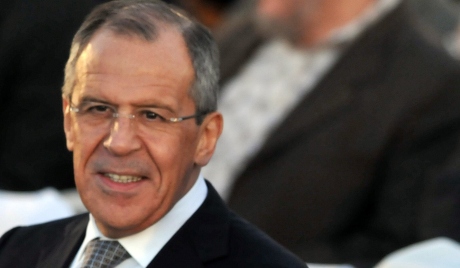Russia’s Foreign Minister Sergei Lavrov is sure the agreements reached in Geneva between Iran and the Sextet remove the risks related to proliferation of the mass destruction weapons in the Iranian nuclear programme.
“We are removing substantially the risks, removing the questions, which may countries had regarding whether there were risks of proliferation of the mass destruction weapons in the Iranian nuclear programme,” he said.
“We shall improve greatly the trust over implementation of the agreement, the trust, which we used to lack so often, which raised excessive additional problems in the region, in the Middle East, in the Gulf area.”
“We believe, this step will favour additional preconditions for approaching the goal, which the international community outlined in 2010 – it is organisation of a conference on organisation in the Middle East of a zone free from mass destruction weapons,” Lavrov said.
“All the factors are to the benefit, nobody has lost, everyone is a winner,” the foreign minister said. “I also hope besides the many listed factors the agreement will favour also the efforts to settle the crisis in Syria, to involve Iran in a productive work with all of us to have Geneva-2.
Iran to freeze whole country’s nuclear programme for six months – Lavrov
Iran will freeze up the whole country’s nuclear programme for six months and will suspend the construction of a heavy water reactor in Arak, Russian Foreign Minister Sergei Lavrov said on Sunday.
“We agreed that this will be the first stage of advancement to this goal, it will take six months, during which Iran will freeze up the whole country’s nuclear programme, will not add new centrifuges and will not take any steps related with the construction of a heavy water reactor in Arak, so, the whole volume of the Iranian nuclear programme, which, by the way, the IAEA is controlling fully and the agency will keep its control over it for next six months,” Lavrov noted.
Agreements with Iran based on concept offered by President Putin – Lavrov
The sense of the agreement between Iran and the Sextet is based on the concept, offered by the Russian president, Russia’s Foreign Minister Sergei Lavrov said on Sunday following the talks.
“We have finalised very complicated and long-lasting negotiations on the Iranian nuclear programme,” he said. “We have achieved an agreement, after the many years of contacts, which have seen both ups and downs. However, as Iran got a new president, we had a feeling the statement about the intention to settle the problem did have a serious base,” Lavrov said.
“It was evident from the negotiation positions of our Iranian counterparts and two weeks earlier, as the first meeting in Geneva took place, and also over the several few days at another round, to the final stage of which arrived foreign ministers of all the six powers, which make the so-called Group 3+3.”
“We have achieved an agreement, which essence is based on the concept, offered by President Putin a certain time ago, and which is fixed in our concept of foreign policy,” Lavrov said.
Iran agrees to halt expansion of high-level uranium enrichment
Iran will halt the enrichment of uranium to a level of 20 per cent for six months, Foreign Minister Mohammad Javad Zarif says. However, Tehran would be allowed to continue other parts of its enrichment programme, he says.
In return, the six world powers negotiating the deal pledged to not impose additional sanctions against Iran during that time and would suspend some existing punitive measures.
Measures to be suspended include parts of the oil embargo, as well as sanctions against Iran’s petrochemical industry, car production, insurances and trade with precious metals, the minister says.
Separately, European Union foreign policy chief Catherine Ashton said that the interim deal struck by Iran and six major powers would provide the time and space to try to reach a comprehensive solution to the decade-long nuclear standoff between Tehran and the West.
and the United States.
Six powers, Iran agree on nuclear deal
The P5+1 world powers and Iran have struck a historic deal on Tehran’s nuclear program at talks in Geneva on Sunday. Ministers overcame the last remaining hurdles to reach agreement, despite strong pressure from Israel and lobby groups.
The P5+1 and Iran arrived at the historic deal over Iran’s nuclear program at approximately 3:00 AM local time in Geneva.
Before the assembly, the foreign ministers reportedly spent some time consulting with their capitals, a diplomatic source in the Russian delegation told Ria.
The tough discussions of the remaining sticking point of nuclear enrichment has stretched into the night, as the world powers were adamant to strike a deal.
According to Iranian Deputy Foreign Minister Abbas Araghchi, shortly before midnight, the talks were in “their 11th hour.” He said that “98 percent of the draft” had already been agreed and the sides were discussing the remaining 2 percent, which was “very important” to the Iranian side.
During the day Iran once again reiterated it would not accept a deal which did not recognize in one way or another Iran’s right to enrich uranium.
“Any agreement without recognizing Iran’s right to enrich, practically and verbally, will be unacceptable for Tehran,” Araghchi told journalists.
M.D

